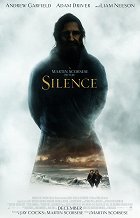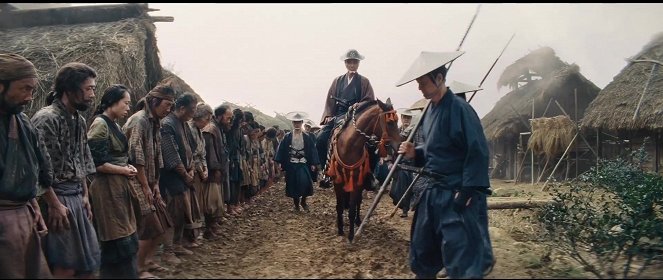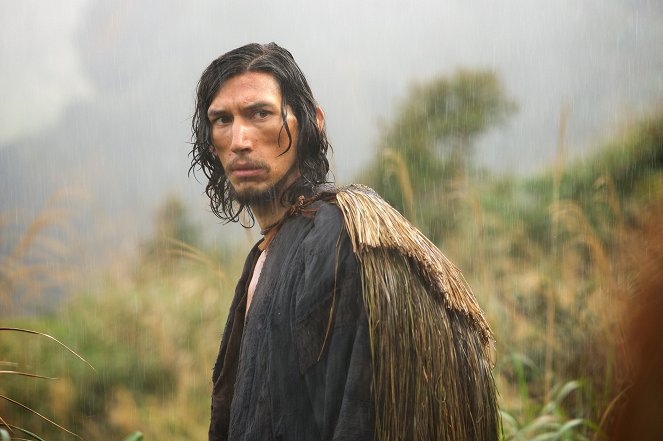Directed by:
Martin ScorseseCinematography:
Rodrigo PrietoCast:
Andrew Garfield, Adam Driver, Liam Neeson, 浅野忠信, Ciarán Hinds, Shin'ya Tsukamoto, Yōsuke Kubozuka, Ogata Issei, Sabu, Ryō Kase, 小松菜奈, 美知枝, Katsuo Nakamura, 笈田ヨシ (more)VOD (2)
Plots(1)
In the seventeenth century, two Jesuit priests face violence and persecution when they travel to Japan to locate their mentor and to spread the gospel of Christianity. (official distributor synopsis)
Videos (19)
Reviews (14)
I admire Martin Scorsese for reaching for matters of the heart without hesitation, even after audience-pleasing films like The Wolf of Wall Street or Shutter Island, knowing that it may not be successful commercially. And as is customary with matters of the heart, one reluctantly leaves out, limits, or shortens one's expectations. The fight for truth, against suffering, and with one's own ego, is portrayed in a way that is a destructive spectacle, thanks in large part to a phenomenal performance from Andrew Garfield. It raises a hundred and one questions, but mostly focuses on the same topic, which inevitably becomes tiresome even for the most accommodating viewer given the copious running time. Through Rodrigo Prieto's captivating camera work, Silence is visually stunning, but due to the sluggish screenplay, it is a bit challenging to engage in conversation about it.
()
Personalities like Martin Scorsese have the power to make the general public interested in subjects they choose. Such a personal topic for Scorsese was the novel "Silence" by Shūsaku Endō, which he presented to Western viewers 45 years after its original Japanese adaptation Silence. However, it is very difficult to establish a personal connection to the story of Portuguese Jesuits on a Japanese mission in the 17th century. The spiritual atmosphere and beautiful landscape are certainly captivating, but A-list actors like Andrew Garfield, Adam Driver, and Liam Neeson are naturally more suited to a different context.
()
This film project, which director Martin Scorsese worked on for a considerable number of years, had long eluded me. I was somewhat deterred by its length and religious theme. But now I can say that avoiding the film was a mistake. Sure, this movie set in the attractive backdrop of Japan might not appeal to a broad audience, which I completely understand, but from a craftsmanship perspective, it’s flawless. The acting is absolutely transcendent; Andrew Garfield and Adam Driver both clearly demonstrate their professional preparation for their roles as Christian missionaries sent to the "Land of the Rising Sun." Their dramatic weight loss alone deserves a thumbs up from every viewer. The film doesn’t use any sets or substitutes for exteriors; you get to fully enjoy the beautiful and varied landscape of this exotic country. Besides the polished dialogues, the film gives a glimpse into how the Japanese dealt harshly with missionaries in the 17th century (there are some intense scenes of torture that take your breath away). The ending is excellent. I was just a fraction short of giving it five stars. Scorsese excelled (as expected! :D). For me, it’s 8.5/10.
()
The silence of a directorial genius. It has gorgeous cinematography, but that’s something I take for granted and consider mandatory in world-class filmmakers; the dialogues have something to then, and the message is morally unquestionable, carved into the viewer with a surgically precise pace and methodical narrative rhythm. BUT steady pace does not equal quality pace, and I personally didn't become a staunch defender of the art of filmmaking in order to patiently stoke my faith in a director's divine abilities, which began to fade after a few dozen emotionally catatonic minutes, and even after 160 long minutes, it didn't even come close to rediscovering itself, unlike the steadfast protagonist. To fully appreciate the film on a purely narrative level, I guess I wouldn't have to be such a die-hard atheist and hardened ignoramus of man's blind faith in supernatural forces and the hellish consequences of betraying one's own beliefs; to enjoy it as a visual self-questioning catharsis, it wouldn't have to talk and repeat so much simple, universally understood religious motifs. God bless Scorsese for taking on such heavy and massively impenetrable material in the first place, but this time I dare to tread on his sacrament and I can honestly say that if Bruce Wayne had popped up behind Liam Neeson's back at the end and kicked his ass with kung fu, I might have been a lot happier with the outcome. Kundun, although with a less serious subject, was much more enjoyable.
()
The first half is hell. A non-stop conversation about belief in God, interspersed with Rodrigo Prieto's gorgeous cinematic orgy. Unfortunately, Silence, especially in its first half, is annoyingly tedious, relatively simple, and in no way thought-provoking. But that gradually changes, and the arrival of Liam Neeson on the scene makes a fitting twist. His polemical conversation with Andrew Garfield about faith is interesting, thought-provokingly robust and to the point, and it gives the film a welcome sense of purpose and dramatic arc. The running time of Silence is monstrous considering the intimate story it tells, but as a probe into feudal Japan involving the Christian faith, it's manageable. I wouldn't have guessed Scorsese made it at all. On the face of it, it has nothing to do with his classic masterpieces. But it does with the religious ones.
()



Ads